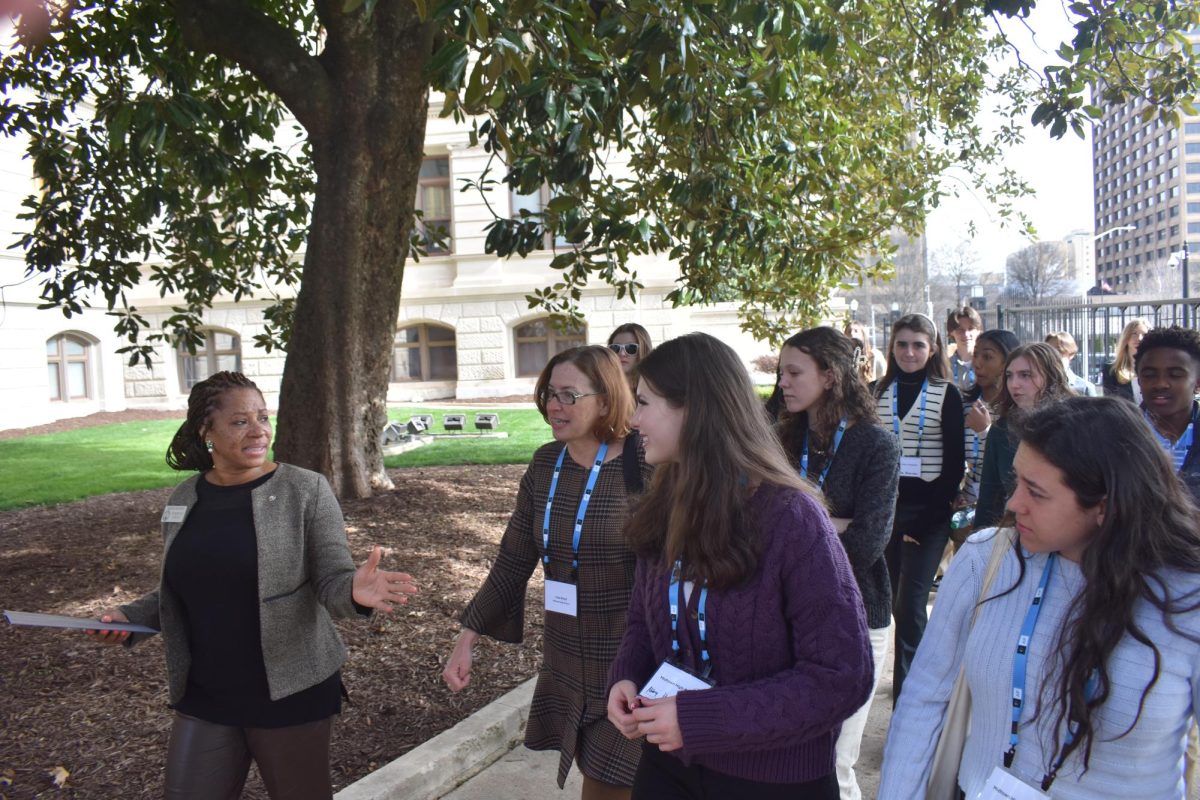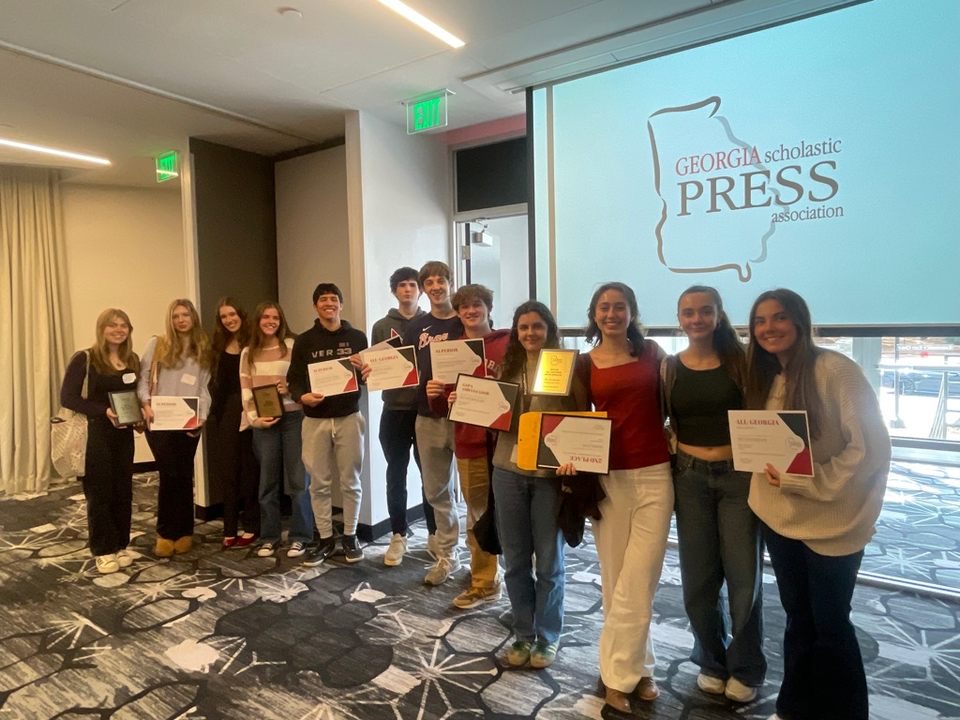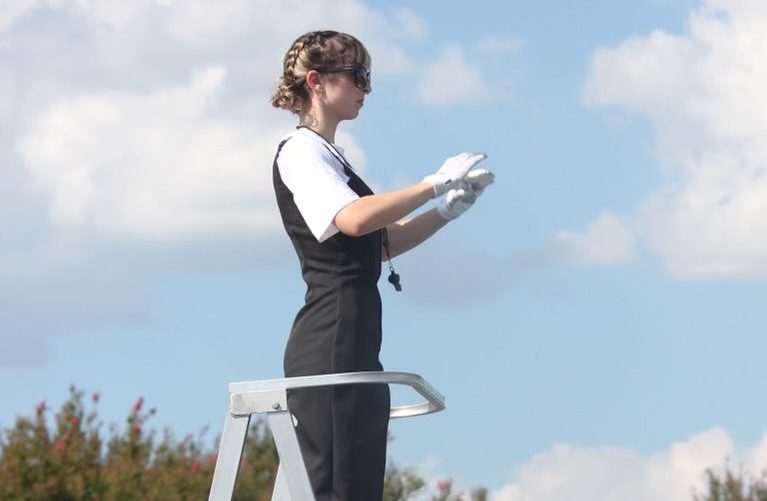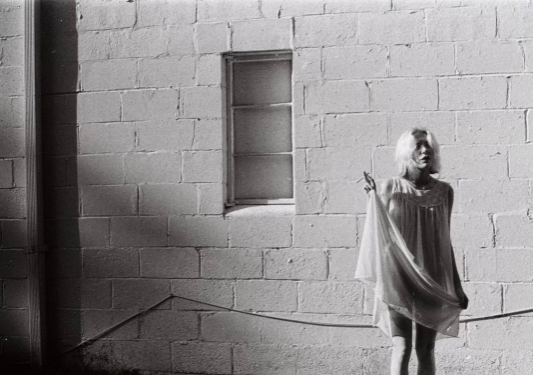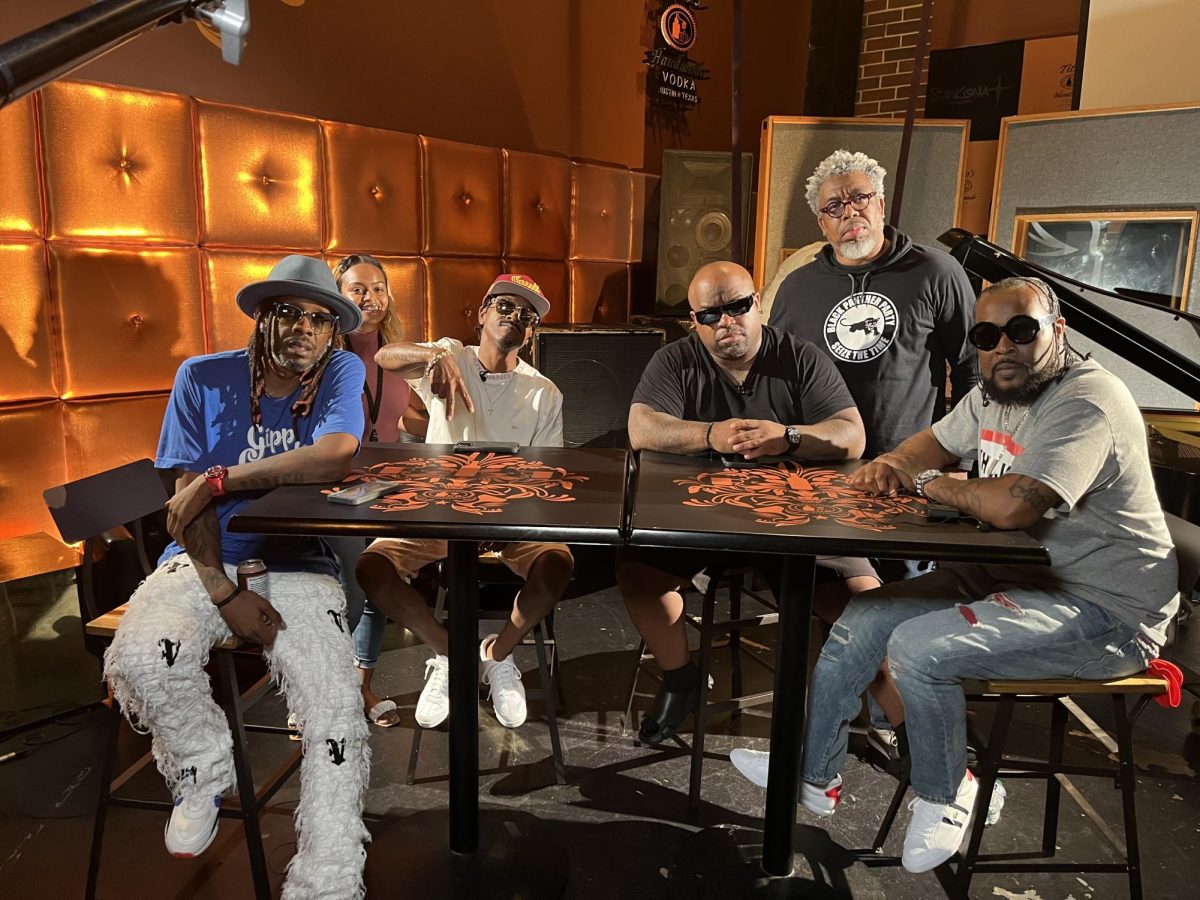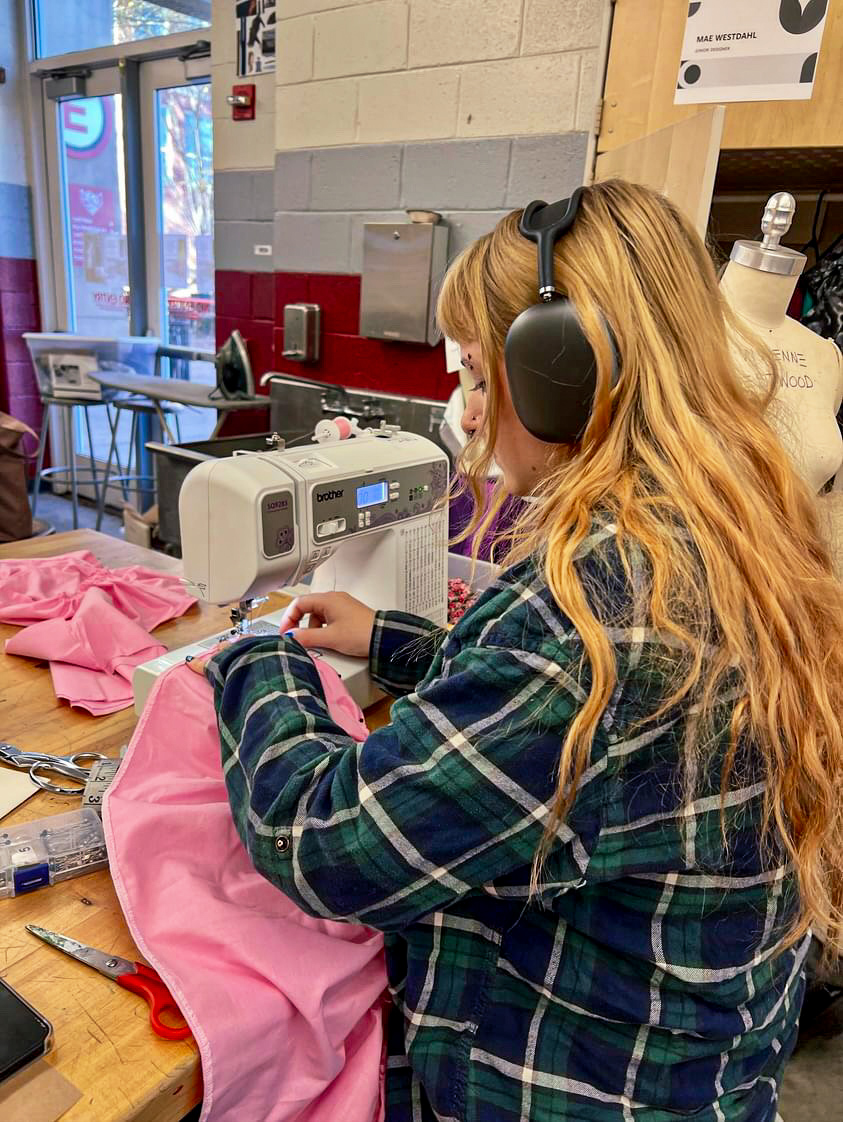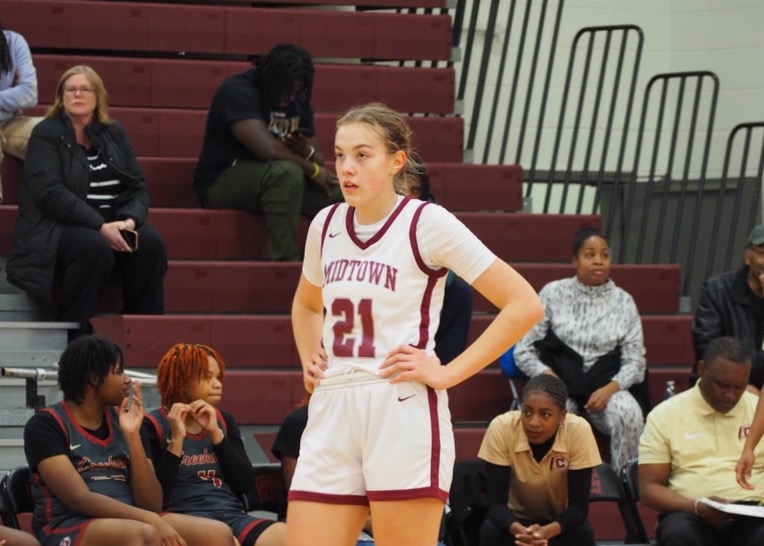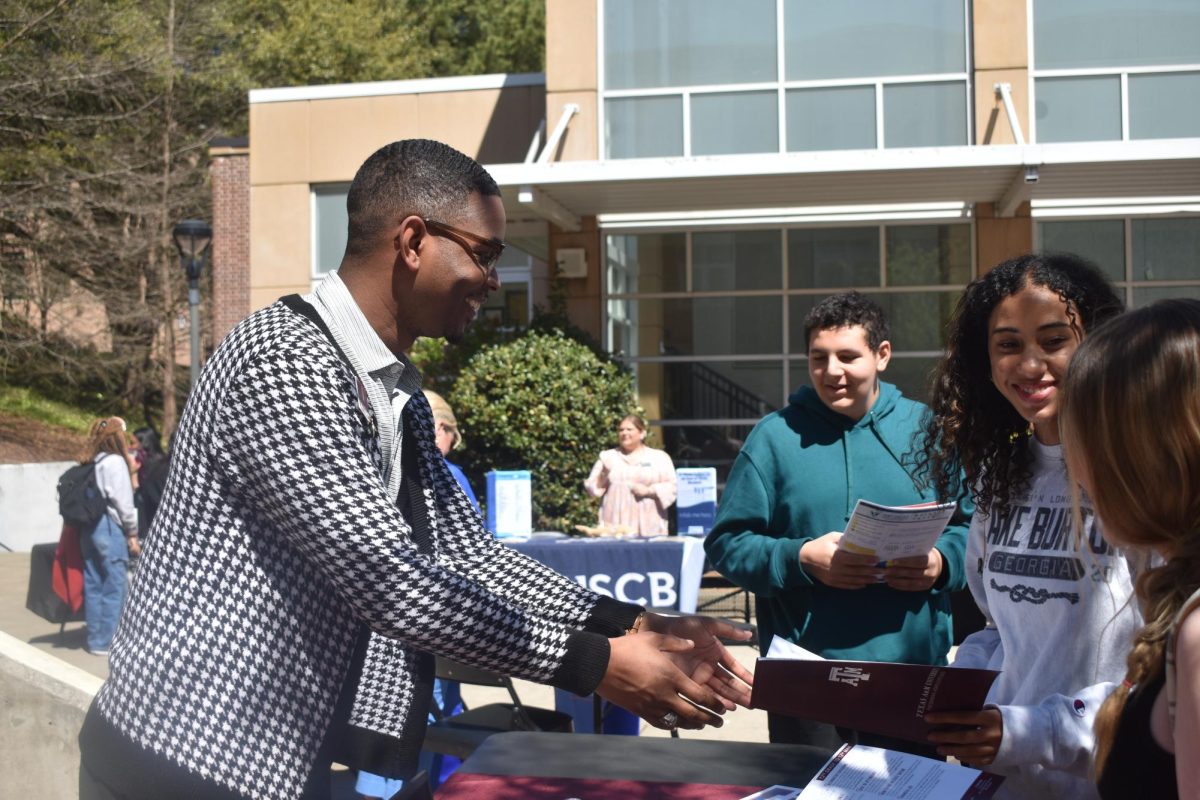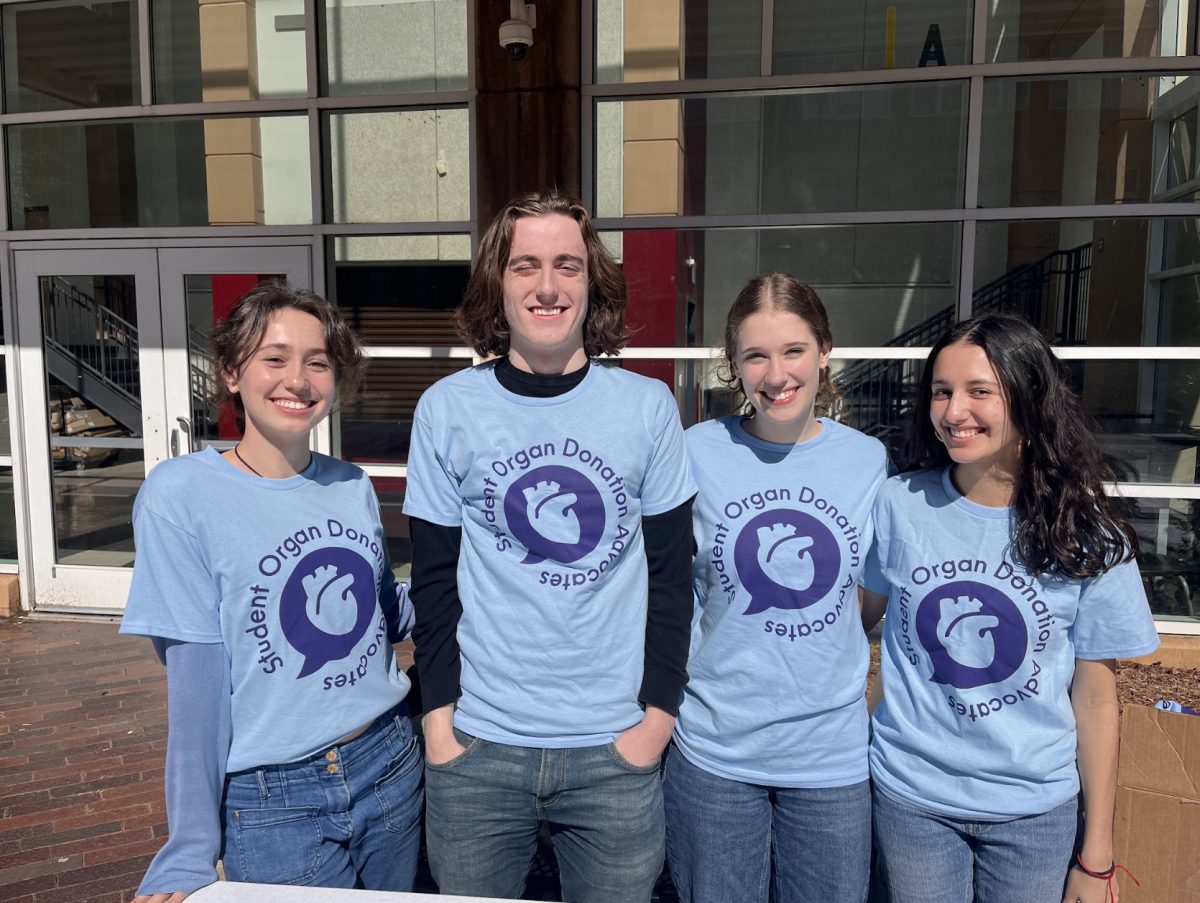
Lit teacher to discuss memoir about her father’s struggles with PTSD at Wednesday Author Talk
By Clarissa Mullig and Ben Grady
“I believe stories can change the world,” Dr. Christal Presley proclaims on her blog. “I always have and I always will.”
Presley is a published author, the daughter of a Vietnam veteran and a teacher at Grady High School, and she has quite a story to tell. Two years ago, Presley published her first book, a memoir titled Thirty Days with My Father: Finding Peace from Wartime PTSD. She describes growing up with her father, a radio carrier in the Vietnam war who suffered from severe post-traumatic stress disorder, or PTSD. Publishers Weekly described the memoir as “a harrowing portrait of the past’s ability to haunt the present.”
During Presley’s childhood, there was no medical term for her father’s illness, driving her family to keep his frightening behavior a secret. After being estranged from her father for many years, she decided to get back in touch with him when a guest speaker at a writing workshop encouraged students to write about what they feared the most. For the next month, Presley called her father every day to discuss her childhood, his memories of the war and how PTSD had affected their family. Her book explores those conversations along with Presley’s experiences with her father’s illness. Writing for herself, however, wasn’t enough; Presley wanted to share her life with others who had similar stories. Once her memoir was complete, she needed to find a way to get it published.
“Getting published is not for the faint of heart; that’s for sure,” Presley said. “Anybody who wants to be published is gonna have to develop a thick skin because most of us get rejected at least 80 to 100 times before we get anybody who will say yes.”
Presley was a former intern of Algonquin Press, an internationally recognized publishing company located in Chapel Hill, N. C.. One of the head editors helped her get in contact with a literary agent. After spending more than a year approaching publishers who weren’t interested, Presley’s agent also seemed to lose interest in the book. After six months of waiting, Presley fired her agent and instead tried to sell the book on her own.
“This was after I had already had 30 or 40 rejections with a literary agent,” Presley recalled. “And not just with any literary agent, with one of the top literary agents in New York City.”
After a considerable amount of research, Presley found five different publishing companies who would accept her manuscript without an agent. She submitted her memoir, and one company, HCI Books, said yes.
Once the memoir had been published, Presley rushed to get her hands on a physical copy.
“I was just so excited and I was also worried that maybe we had missed grammatical errors, and so I was combing through it, you know, my heart pounding, thinking there’ll be some sort of horrible mistake in it,” Presley said. “And there wasn’t.”
To go along with her book, Presley created United Children of Veterans, an organization for people who, like her, are the sons and daughters of war veterans. Presley decided to create the organization when she realized that there were others out there with stories like hers. Before she began writing her memoir, Presley had been blogging about her phone calls with her father. The posts started going viral, and Presley began receiving thousands of messages from other sons and daughters of veterans who identified with her story.
“I was so overwhelmed and freaked out about it that I thought, ‘I can’t answer all these emails. I have to do something, and I don’t know what else to do except create some sort of organization for these people, so people will have a place to come to for support and for resources.’”
Despite the attention Presley received online, she still had a lot to do before her book would sell. After publishing her memoir, Presley spent a year on a self-funded book tour in order to gain publicity.
“This is what a lot of people don’t realize,” Presley said. “Writing professionally is not just writing and then somebody publishes you, end of story. I was really clueless for a long time. I thought being a published writer meant you spent all your time writing the book, and then people would just buy it. But I was completely wrong. What I found out is, about 40 percent of the effort is the writing of the book, and the revising of the book, and about 60 percent of the effort is marketing.”
In order to promote her book, Presley reached out to several different media outlets.
“I really thought that the media would just come to me, once the book came out, but I’m like a needle in a haystack,” Presley said. “Nobody just reached out to me and said, ‘Can you come to CNN Studios at this time period?’ You have to reach out to CNN and say, ‘This is what I’m doing, are you interested? Here’s my book; let me send you a copy of my book.’”
In the past two years, Presley has done almost 200 radio and TV interviews. She has interviewed on CNN and NPR, and excerpts from her memoir have appeared in The Atlanta Journal-Constitution.
It’s hard to imagine that, on top of the constant workload that comes with being a published author, Presley could possibly manage another career. Despite these demands on her time, Presley has devoted herself to a career in education. Presley taught English in Virginia for eight years before moving to Atlanta. Now a teacher at Grady, Presley admitted that it’s difficult to find a balance between her work and her writing.
“Teaching’s not over at 3 o’clock, or 3:30,” Presley said. “We’ve got papers to grade, lessons to plan, stuff to read after school and on weekends.”
Presley, who is currently writing a novel, said she believes she will find more time to write as the year goes on.
While working with students, Presley has noticed significant changes in society since her upbringing. During Presley’s high school years, a stigma surrounding mental illness prevented her from discussing her father’s behavior with others. Since then, however, many people have become more open-minded, a shift Presley regards with optimism.
“I hope that people these days … will have less issues being upfront about some of the things I wasn’t able to be upfront about,” Presley said.
Presley also recommended students read a variety of materials in order to learn about the world around them. Her love of literature became a refuge from her difficult childhood.
“As a child, reading and writing saved my life,” Presley wrote on the United Children of Veterans website. “I believe stories have the power to help us face our truths, to make us better understand each other, and to teach us the morality by which to live.”
Presley’s faith in the power of stories has stayed with her all these years, leading her to become both an author and an English teacher.
“Stories can make the unseen seen,” Presley wrote. “They can strike a chord in people and make them change—make them take action, and even help them heal—the way nothing else ever could.”
As part of the Writing Center’s Author Talk series, Presley will read from and talk about her book at 4 p.m. Wednesday in the Writing Center.




